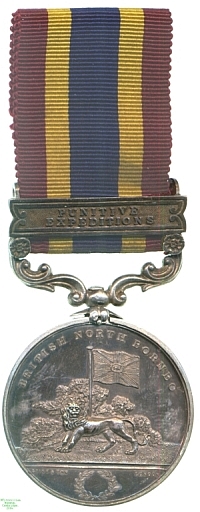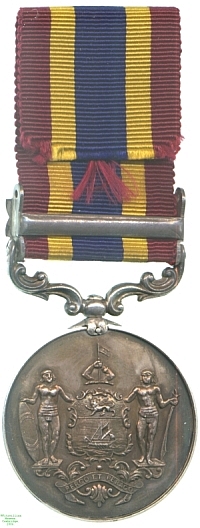
Obverse, the British lion passant looking out, before a Union Jack flagstaff and wooded background; in the exergue, a laurel wreath with Spink & Sons engraved left and London engraved right

Reverse, arms of couped shield with galleasse at sea base, lion passant chief, shield flanked by native warriors one with shield and other with machete, above arms holding flagstaff, below motto on scroll over antlers